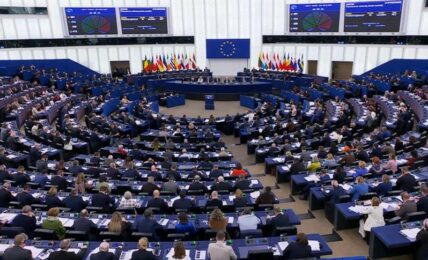Wine and spirits producer Pernod Ricard announced today a series of new near- and long-term climate-related goals, including targets to cut direct emissions by more than half by 2030, and by 90% by 2050, as well as commitments to reduce emissions across the value chain, including forest, land and agriculture-related (FLAG) emissions.
The company also announced that its new targets have been approved by the Science Based Targets initiative (SBTi).
Maria Pia De Caro, EVP, Integrated Operations and Sustainability at Pernod Ricard, said:
“The validation of our new carbon reduction targets by the Science Based Targets initiative (SBTi) is a recognition of our teams’ efforts to build strong carbon reduction roadmaps across our operations and throughout our value chain.”
Pernod Ricard’s new climate goals include commitments to reduce absolute Scope 1 and 2 emissions by 54%, Scope 3 FLAG emissions by 30.3% and Scope 3 Non-FLAG emissions by 25% by 2030, on a 2022 basis. Longer-term goals include reducing absolute Scope 1 and 2 emissions and Scope 3 non-FLAG emissions by 90%, and Scope 3 FLAG emissions by 72% by 2050. Pernod Ricard also committed to no deforestation across its primary deforestation-linked commodities by the end of 2025.
Scope 3 accounts for approximately 95% of Pernod Ricard’s emissions footprint, with nearly half linked to agriculture, 25% to packaging, and 8% to transport.
Pernod Ricard outlined some of the key actions it will pursue to achieve its climate goals, including transitioning to alternative, renewable energy and technologies for its distilleries, increasing circularity and innovation in packaging, switching to electric or biofuel-powered transportation, optimizing shipping loads and exploring alternative modes of transportation, for its transport and logistics activities.
To help address agriculture emissions, the company said that it is implementing regenerative agricultural practices aimed at restoring natural ecosystems, reducing emissions and enhancing carbon sequestration in the soil.
De Caro added:
“The world is facing increased social and environmental pressures which are urging us to act faster. Our net-zero science-based targets give us the right ambition and drive to further the progress we have made so far and play our part as a wine and spirits leader in addressing the challenge of climate change.”

